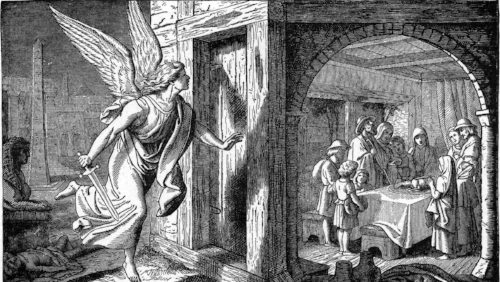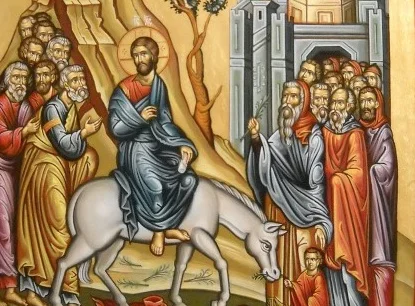The Song of Deborah (Judges 5) is one of the oldest writings of the Bible. It records how YHWH, the Divine Warrior, fights through and alongside His appointed champions against the forces of the Canaanites.
The poem is divided into three sections, each focused on the actions of a woman: Deborah— the prophet/judges; Jael—the wife of Heber the Kenite; and the mother of Sisera, the Canaanite general whose forces are oppressing the children of Israel. By the end of the poem, Deborah has led YHWH’s forces to victory over their Canaanites foes, and Jael has hammered a tent peg into the fleeing head of Sisera. Sisera’s mother is left waiting, wondering where her son is.
Standing upon her palace parapet she asks her handmaidens where her boy is, why has he not returned home? She comforts herself by assuming that he is collecting war prizes for his men, and presents for her, his loving mother:
“Why is his chariot so long in coming? Why tarry the hoofbeats of his chariots? … Are they not finding and dividing the spoil?—A girl or two for every man; spoil of dyed stuffs for Sisera, spoil of dyed stuffs embroidered, two pieces of dyed work embroidered for my neck as spoil?” (Judges 5:28b-30, NRSV)
“A girl or two for every man.” A רַחַם (racham) or two for every man.
But רַחַם (racham ) doesn’t mean “girl” (or “damsel” as in other translations). Though it has a variety of meanings, in this context at best it means “womb” and at worst “vagina.” We say “at worst” not because there is anything wrong with vaginas, but because the modern equivalent could be saying “pussy.” Roll those around the tongue:
“A womb or two for every man.”
“A vagina or two for every man.”
“A pussy or two for every man.”
Some argue that this is an example of metonymy, where a part represents the whole— like how one would say “The White House” or “Parliament” to represent the totality of government, or “wheels” to refer to a car; However, even if this were the case, the context is clear: Sisera’s mother is comforting herself with the hope that her son is bringing back not women, but objects of sexual conquest and gratification.
Beyond the fact that this portrays a male author of the text (we are doubting a woman would comfort herself with thoughts of female sexual subjugation at the hands of her bouncing baby boy, and every member of his army taking whichever two women they could find), it also portrays the Bible’s sense of irony.
By the time his mother says these words at the end of the poem, we know Sisera is not bringing back a vagina or two to rape and torture, and then possibly leave dead when he grows bored with them, this after killing their men and children.
No.
By the time his mother says these words at the end of the poem, we know Sisera lies dead because two women— not “wombs,” not “vaginas”— rose up against him, killed his men and their children, and then drove a phallus-like tent peg through his head.
Perhaps God has a sense of humor and more highly attuned sense of feminism than some give credit for, and inspires biblical writers with same.
But what do we know: we made this game and you probably think we’re going to hell.



![O Come, O Come Emmanuel (Isaiah 7:14) [An Advent Card Talk]](https://images.squarespace-cdn.com/content/v1/55a9a1e3e4b069b20edab1b0/1483161046976-X5VJE3CMP9T957O72EII/3d-wallpapers-light-dark-wallpaper-35822.jpg)

